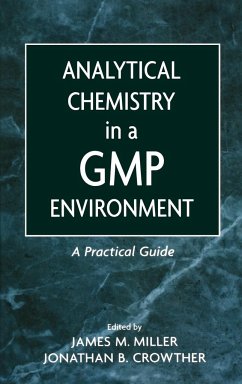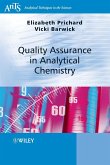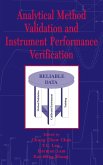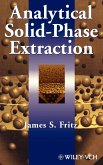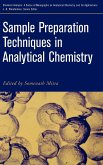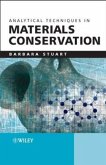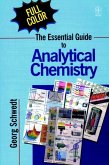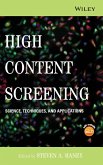Der zunehmende Druck des Gesetzgebers auf die pharmazeutische Industrie steigert die Nachfrage nach Fachkräften, die in Forschung, Entwicklung und Produktion zuverlässig und qualitätssicher arbeiten. Dieser Band ging aus dem einschlägigen Inhouse-Weiterbildungsprogramm von Johnson&Johnson hervor und zeigt dem Analytiker anschaulich, wie die GMP-Vorschriften der FDA im Alltag umzusetzen sind. Angesprochen werden alle wichtigen Analysenverfahren und Methoden, von der Spektroskopie über die Chromatographie bis zur Herstellung von Lösungen. Hervorragend auch zum Selbststudium geeignet!
How to hone your analytical skills and obtain high-quality data inthe era of GMP requirements
With increased regulatory pressures on the pharmaceutical industry,there is a growing need for capable analysts who can ensureappropriate scientific practices in laboratories and manufacturingsites worldwide. Based on Johnson & Johnson s acclaimedin-house training program, this practical guide provides guidancefor laboratory analysts who must juggle the Food and DrugAdministration s good manufacturing practices (GMP) rules withrapidly changing analytical technologies. Highly qualified industryexperts walk readers step-by-step through the concepts, techniques,and tools necessary to perform analyses in an FDA-regulatedenvironment, including clear instructions on all major analyticalchemical methods-from spectroscopy to chromatography todissolution. An ideal manual for formal training as well as anexcellent self-study guide, Analytical Chemistry in a GMPEnvironment features:
The drug development process in the pharmaceutical industry
Uniform and consistent interpretation of GMP complianceissues
A review of the role of statistics and basic topics in analyticalchemistry
An emphasis on high-performance liquid chromatographic (HPLC)methods
Chapters on detectors and quantitative analysis as well as datasystems
Methods for ensuring that instruments meet standard operatingprocedures (SOP) requirements
Extensive appendixes for unifying terms, symbols, and proceduralinformation
Hinweis: Dieser Artikel kann nur an eine deutsche Lieferadresse ausgeliefert werden.
How to hone your analytical skills and obtain high-quality data inthe era of GMP requirements
With increased regulatory pressures on the pharmaceutical industry,there is a growing need for capable analysts who can ensureappropriate scientific practices in laboratories and manufacturingsites worldwide. Based on Johnson & Johnson s acclaimedin-house training program, this practical guide provides guidancefor laboratory analysts who must juggle the Food and DrugAdministration s good manufacturing practices (GMP) rules withrapidly changing analytical technologies. Highly qualified industryexperts walk readers step-by-step through the concepts, techniques,and tools necessary to perform analyses in an FDA-regulatedenvironment, including clear instructions on all major analyticalchemical methods-from spectroscopy to chromatography todissolution. An ideal manual for formal training as well as anexcellent self-study guide, Analytical Chemistry in a GMPEnvironment features:
The drug development process in the pharmaceutical industry
Uniform and consistent interpretation of GMP complianceissues
A review of the role of statistics and basic topics in analyticalchemistry
An emphasis on high-performance liquid chromatographic (HPLC)methods
Chapters on detectors and quantitative analysis as well as datasystems
Methods for ensuring that instruments meet standard operatingprocedures (SOP) requirements
Extensive appendixes for unifying terms, symbols, and proceduralinformation
Hinweis: Dieser Artikel kann nur an eine deutsche Lieferadresse ausgeliefert werden.
"...chemists...explain how to comply with US Food and Drug Administration's Good Manufacturing Practice rules as analytical technologies are changing rapidly." (SciTech Book News, Vol. 24, No. 4, December 2000)
"Anyone...involved in training exercises and in...gathering...pertinent material from different sources will find this book very helpful." (Journal of Medicinal Chemistry, Vol. 44, No. 21, 2001)
"I recommend this book for anyone who recognizes a need for more and better training of pharmaceut9ical laboratory analysts...a remarkably rich resource." (Clinical Chemistry, Vol. 48, No. 3, 2002)
"Anyone...involved in training exercises and in...gathering...pertinent material from different sources will find this book very helpful." (Journal of Medicinal Chemistry, Vol. 44, No. 21, 2001)
"I recommend this book for anyone who recognizes a need for more and better training of pharmaceut9ical laboratory analysts...a remarkably rich resource." (Clinical Chemistry, Vol. 48, No. 3, 2002)

